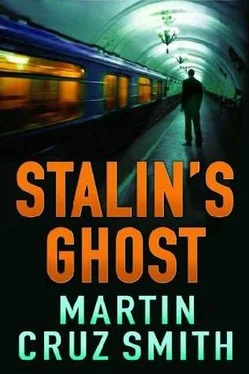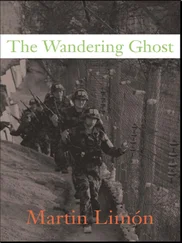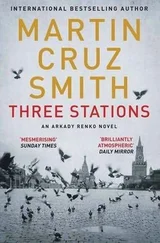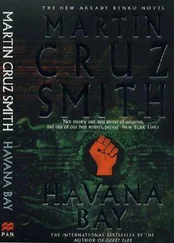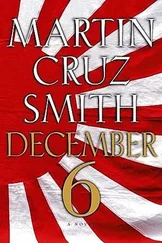Martin Smith - Stalin’s Ghost
Здесь есть возможность читать онлайн «Martin Smith - Stalin’s Ghost» весь текст электронной книги совершенно бесплатно (целиком полную версию без сокращений). В некоторых случаях можно слушать аудио, скачать через торрент в формате fb2 и присутствует краткое содержание. Жанр: Триллер, на английском языке. Описание произведения, (предисловие) а так же отзывы посетителей доступны на портале библиотеки ЛибКат.
- Название:Stalin’s Ghost
- Автор:
- Жанр:
- Год:неизвестен
- ISBN:нет данных
- Рейтинг книги:4 / 5. Голосов: 1
-
Избранное:Добавить в избранное
- Отзывы:
-
Ваша оценка:
- 80
- 1
- 2
- 3
- 4
- 5
Stalin’s Ghost: краткое содержание, описание и аннотация
Предлагаем к чтению аннотацию, описание, краткое содержание или предисловие (зависит от того, что написал сам автор книги «Stalin’s Ghost»). Если вы не нашли необходимую информацию о книге — напишите в комментариях, мы постараемся отыскать её.
Stalin’s Ghost — читать онлайн бесплатно полную книгу (весь текст) целиком
Ниже представлен текст книги, разбитый по страницам. Система сохранения места последней прочитанной страницы, позволяет с удобством читать онлайн бесплатно книгу «Stalin’s Ghost», без необходимости каждый раз заново искать на чём Вы остановились. Поставьте закладку, и сможете в любой момент перейти на страницу, на которой закончили чтение.
Интервал:
Закладка:
From the passenger seat Elena Ilyichnina looked sadly at the passing countryside. To Arkady’s astonishment she had accepted the offer of a ride to her hometown to visit her mother. Villages on the way were dying, hollowed out by the mass evacuation of the young, who went to Tver, to Moscow or St. Petersburg rather than suffer what Marx called “the idiocy of rural life.” A village shop sold gum boots and canvas jackets. Moscow offered supermodels and video arcades. An entire generation went to the city to make a fortune, gain computer skills, to hang, to temp, to wear a paper cap and fry chicken, to-one way or another-take part in the future. The death of a village could be tracked by the number of houses that, unpainted, turned to gray and disappeared among the trees; in most villages gray was epidemic.
During the war Tver had been called Kalinin, in honor of Russia’s president. Kalinin had a distinguished goatee and, more important, was an organ grinder of secretary praise. In Kalinin’s estimation, Stalin was “our best friend, our best teacher, the pathfinder of the ages, the genius of science, brighter than the sun, the greatest military strategist of all time.” Stalin tried to get Kalinin to please stop, no more, but he wouldn’t. As soon as the Soviet Union fell apart Tver reclaimed its ancient name.
Although the day was warm Elena Ilyichnina’s ears were a vivid pink and it struck Arkady that she was many men’s ideal: a big woman, Victor often said, was a rock in stormy seas. She had organized a lunch of sausage and bread to eat on the way.
Conversation never really got started. They were like two dancers so out of synch that they finally abandoned the floor. Also, Elena Ilyichnina had worked one shift in Moscow and was about to start a shift in Tver and she took the opportunity to nap, which was fine with Arkady. She made a companionable presence as long as she didn’t talk.
As they neared Tver he became aware that she was awake and watching him. She said, “I hear that you are an investigator who doesn’t carry a gun. What is the philosophy behind that?”
“No philosophy. In some situations the gun becomes an issue. You start worrying about when to show it, when to use it. It’s like a locomotive; it takes you where it wants to go.”
“And then someone has to pick a bullet out of your head.”
“It’s not an air-tight system. Are you telling me I’ll need a gun in Tver?”
“No.”
“What is Tver like, then?”
“Patriotic. In Moscow, people pay doctors to concoct reasons why their precious sons can’t serve their military duty. Of course, the army is brutal and stupid, but in Tver, where boys are just as precious, everyone goes.”
“Moscow sounds unpopular.”
“I would get a new plate for the car.”
That sounded unnecessary to him-after all, he didn’t know how long he would even be in Tver-and he changed the subject by asking about her mother’s health.
“Day to day.” She looked suddenly exhausted. “I’ll be back in Moscow tomorrow. Here’s the hospital now.”
They drove up to the admissions door of a dismal six-story building, a structure of plate glass and pre-cast concrete that once looked modern. Grit covered the glass and the concrete was stained from the rust of low-grade rebars.
“It’s better on the inside.” Elena Ilyichnina scribbled on a card and gave it to Arkady. “I’ve added my cell phone number. In case…”
“Just in case,” he agreed.
As Arkady got back on the road a group of motorcycles overtook him, maybe twenty bikers in scruffy combinations of dark glasses, facial hair and leather jackets. Their bikes shone like gems set in chrome. With his long red hair and bandanna the lead rider could have passed for a buccaneer. His machine was low set, elongated, the color of rubies and as it cruised by, he signaled Arkady to lower his window.
“Fuck Moscow!” the biker shouted.
The pack rolled by.
Arkady decided to change his license plate.
“Welcome to Tver.” City Prosecutor Sarkisian made a sentence sound like one sibilant word. He maneuvered Arkady around the office, so that he could enjoy professional certificates, oil paintings of Mount Ararat and, in a place of honor, photographs of the prosecutor in judo gear with the President himself. Otherwise the office was the same as Zurin’s, the Soviet red carpet, dark paneling, drapes in deep maroon. A window looked down on a square with a statue of Lenin overdressed for the weather. “Too bad you missed lunch. You’re going to find this is a very friendly city. Having our ups and downs, as who isn’t. Once you’re settled in, though, friendliest place on earth. There are no secrets in Tver.” Sarkisian squeezed Arkady’s shoulder. “You did volunteer for Tver?”
“Yes.”
“I had a conversation with Zurin, prosecutor to prosecutor. You have a reputation as a, let’s say, unusually active investigator. You like to get to the crime scene.”
“I suppose so.”
“I have a different approach. I think of my investigators as editors rather than writers. Let the detectives do the detecting. Your role is to take their findings and edit them into a case I can take to court. It’s like geese flying south. They don’t fly each in a different direction. They fly in formation. Correct?”
“Yes.”
“Less wear and tear too. The doctors have given you the go-ahead?”
“Completely healed.”
“Excellent, but before you come to work, take a few days to learn the lay of the land. I insist. You’ll meet the men later. If I had been given more notice of your arrival we could have prepared a proper ceremony. As it is, we were lucky to organize a room for you to sleep in.”
“Tver is that full?”
“Oh, Tver is a busy town. We’ve put you up at the Boatman. I’ll give you directions.” The prosecutor had already printed them out. “So, as I said, take the next few days to settle in. That will give you a chance to really make up your mind whether or not to transfer here. Then we’ll talk about work.”
Sarkisian steered Arkady into the hall. By the elevator bay a glass cabinet displayed judo medals, trophies, belts.
“We work together, we play together. Is that how it is in Moscow?”
“We drink together.” The elevator, a prewar Otis with an armed operator, finally arrived. Arkady stepped in but held the door. “Moscow does not seem to be well-loved here.”
Sarkisian shrugged at the obvious. “Moscow wants to be the only pig at the trough. The rest of us can starve as far as Moscow is concerned. So, here in Tver, we take care of ourselves.”
Tver had been an elegant city with an imperial palace and, in the Volga, a river that was an inspiration to poets. Then came the revolution, the war, Soviet implosion and economic pillaging, and, it seemed to Arkady, Tver became a couple of boulevards of classical architecture-the drama theater was a Greek temple trimmed in pink-surrounded by desultory shops, idle factories and gray postwar housing. Arkady drove around to see the city while daylight was left, because Russian maps were one thing and reality often something else. There were detours, road work, one-way streets, guarded streets, streets that did not exist, all sorts of surprises.
Short-term memory was an issue for Arkady. Three times he found himself unexpectedly at Lenin’s statue. Arkady consumed a pirog he bought at a kiosk while he contemplated Lenin, who studied a pigeon. Finally, Arkady walked down to the river.
Here the empress Catherine had built a palace for her amours. Here the poet Pushkin had wandered along the river and weaved together “emotion, thought, and magic sound.” Any ordinary winter the Volga would have frozen and Arkady could have walked across the river’s back, but the Volga that he found was swollen with snowmelt and flying through the chute.
Читать дальшеИнтервал:
Закладка:
Похожие книги на «Stalin’s Ghost»
Представляем Вашему вниманию похожие книги на «Stalin’s Ghost» списком для выбора. Мы отобрали схожую по названию и смыслу литературу в надежде предоставить читателям больше вариантов отыскать новые, интересные, ещё непрочитанные произведения.
Обсуждение, отзывы о книге «Stalin’s Ghost» и просто собственные мнения читателей. Оставьте ваши комментарии, напишите, что Вы думаете о произведении, его смысле или главных героях. Укажите что конкретно понравилось, а что нет, и почему Вы так считаете.
